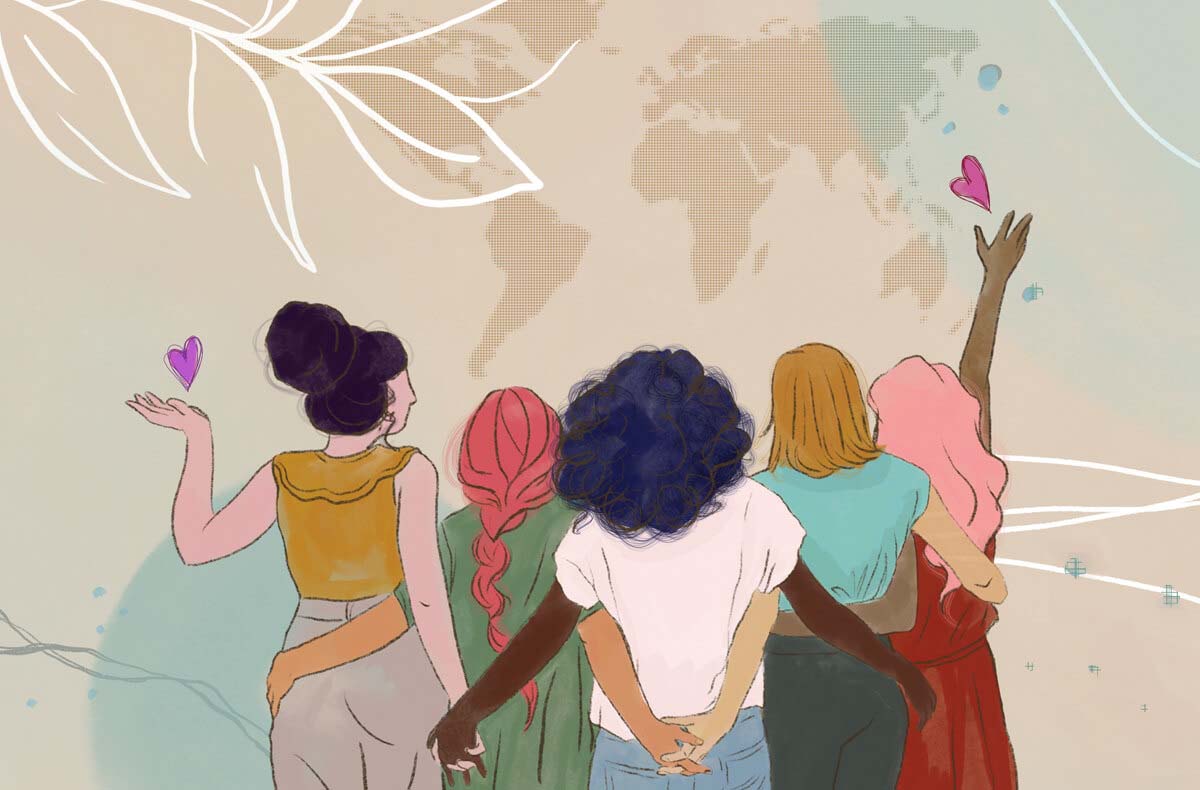
Illustration by Juliana Lagerstedt
Five years ago, my mother invented a tool to help people with amputations use their prosthetic limbs more safely and comfortably. It consists of a large pouch with pockets for socks of varying thicknesses, along with a guide that explains when to swap one kind of sock for another. Your first thought might be (as mine was), “it’s so simple… didn’t something like that exist already?”
It didn’t, and she now has the U.S. patent to prove it. My mother’s invention won’t make her rich, and it won’t land her on the cover of Forbes, but it does have the potential to improve the lives of many people living with amputated lower limbs.
Roughly 150,000 people undergo such amputations each year in the U.S. alone, and many of them use prostheses to help them move around afterward. Scientists have made incredible progress with prosthetic limbs in recent years—soon they might even be able to convey a sense of touch—but even the most high-tech prosthesis can be a hazard to its user if it doesn’t fit right.
A poorly-fitted one grinds against the skin of the residual limb, which can cause irritation and infection, as well as a host of muscular and skeletal issues. This can be extremely distressing for people living with an amputation, who have already gone through one of the most difficult experiences a human can have.
My mother’s invention is a simple, affordable, effective tool that offers great utility to ordinary people. She created it because she saw people in pain and wanted to do something to alleviate their suffering. I’m biased, obviously, but it seems to me that this is one of the most admirable things a person can do with their time on earth.
As I write this in the early moments of Women’s History Month in 2023, I find myself wondering how many women like my mother are working behind the scenes every day to make our world a slightly nicer place to exist in.
What things are they noticing that nobody has noticed before—or perhaps things that have been noticed, but promptly ignored? What ideas do they have for changing our lives in simple ways that have big impacts?
And perhaps most of all: what does the world miss when it’s set up to keep such women in the shadows?
I find it hard to take much encouragement from the constant stream of stories about powerful women doing powerful things. What did it prove, exactly, when Kamala Harris became the first woman vice president of the United States?
What breakthroughs followed when women “took over the military-industrial complex,” as a fawning POLITICO headline once touted? How has the success of the world’s Sheryl Sandbergs actually translated to everyone else?
The shortcomings of elite feminism have been well-documented for years, and I don’t see much point in re-hashing them now. But it does seem like the argument that having women in positions of power—whether that’s in government, business, or elsewhere—will more or less automatically result in positive systems change is an argument with little juice left at this point.
While there’s nothing wrong with shattering glass ceilings, it seems more obvious than ever that what’s really needed is a raising of the floor. Millions upon millions of ordinary women deserve better than what the system currently offers.
Sometimes their struggles are obvious and dramatic, as in the cases of Iranian women fighting for freedom of expression and Latin American women fighting for reproductive justice. Sometimes the battleground is smaller and quieter: the office of a skeptical doctor or a dismissive boss.
In all cases, humanity as a whole loses when the people in power ignore the needs, ideas, and gifts of ordinary women. We lose when the “debate about gender equality” devolves into a jousting match over Elizabeth Holmes or Hillary Clinton or some corporate trainer’s spiel about microaggressions. We lose the ability to choose a new path.
And that path could be an incredible one for us all! My mother’s invention could be a boon for anyone with an amputation regardless of their gender; a society that was serious about preventing domestic violence or pay discrimination or sexual assault would be a healthier and happier one for everybody who lived in it.
What kinds of incredible things could ordinary women accomplish if they could live without the stress and fear that are baked into our current arrangements?
But maybe that’s missing the point, too. The reason ordinary women deserve better isn’t because it would make them more productive workers. It’s because every human should be able to live a life of dignity, security, and fulfillment, and such a future is simply impossible if half the population is deprived of a chance to discover and express their full humanity.
Ordinary women are capable of bringing so much goodness into this world. They deserve their chance to do it, whatever that might look like.


